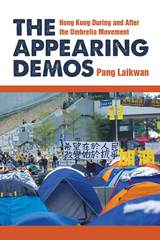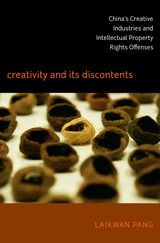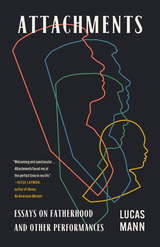2 books by Pang, Laikwan

The Appearing Demos
Hong Kong During and After the Umbrella Movement
Pang Laikwan
University of Michigan Press, 2020
As the waves of Occupy movements gradually recede, we soon forget the political hope and passions these events have offered. Instead, we are increasingly entrenched in the simplified dichotomies of Left and Right, us and them, hating others and victimizing oneself. Studying Hong Kong’s Umbrella Movement, which might be the largest Occupy movement in recent years, The Appearing Demos urges us to re-commit to democracy at a time when democracy is failing on many fronts and in different parts of the world.
The 79-day-long Hong Kong Umbrella Movement occupied major streets in the busiest parts of the city, creating tremendous inconvenience to this city famous for capitalist order and efficiency. It was also a peaceful collective effort of appearance, and it was as much a political event as a cultural one. The urge for expressing an independent cultural identity underlined both the Occupy movement and the remarkably rich cultural expressions it generated. While understanding the specificity of Hong Kong’s situations, The Appearing Demos also comments on some global predicaments we are facing in the midst of neoliberalism and populism. It directs our attention from state-based sovereignty to city-based democracy, and emphasizes the importance of participation and cohabitation. The book also examines how the ideas of Hannah Arendt are useful to those happenings much beyond the political circumstances that gave rise to her theorization. The book pays particular attention to the actual intersubjective experiences during the protest. These experiences are local, fragile, and sometimes inarticulable, therefore resisting rationality and debates, but they define the fullness of any individual, and they also make politics possible. Using the Umbrella Movement as an example, this book examines the “freed” political agents who constantly take others into consideration in order to guarantee the political realm as a place without coercion and discrimination. In doing so, Pang Laikwan demonstrates how politics means neither to rule nor to be ruled, and these movements should be defined by hope, not by goals.
The 79-day-long Hong Kong Umbrella Movement occupied major streets in the busiest parts of the city, creating tremendous inconvenience to this city famous for capitalist order and efficiency. It was also a peaceful collective effort of appearance, and it was as much a political event as a cultural one. The urge for expressing an independent cultural identity underlined both the Occupy movement and the remarkably rich cultural expressions it generated. While understanding the specificity of Hong Kong’s situations, The Appearing Demos also comments on some global predicaments we are facing in the midst of neoliberalism and populism. It directs our attention from state-based sovereignty to city-based democracy, and emphasizes the importance of participation and cohabitation. The book also examines how the ideas of Hannah Arendt are useful to those happenings much beyond the political circumstances that gave rise to her theorization. The book pays particular attention to the actual intersubjective experiences during the protest. These experiences are local, fragile, and sometimes inarticulable, therefore resisting rationality and debates, but they define the fullness of any individual, and they also make politics possible. Using the Umbrella Movement as an example, this book examines the “freed” political agents who constantly take others into consideration in order to guarantee the political realm as a place without coercion and discrimination. In doing so, Pang Laikwan demonstrates how politics means neither to rule nor to be ruled, and these movements should be defined by hope, not by goals.
[more]

Creativity and Its Discontents
China's Creative Industries and Intellectual Property Rights Offenses
Laikwan Pang
Duke University Press, 2012
Creativity and Its Discontents is a sharp critique of the intellectual property rights (IPR)–based creative economy, particularly as it is embraced or ignored in China. Laikwan Pang argues that the creative economy—in which creativity is an individual asset to be commodified and protected as property—is an intensification of Western modernity and capitalism at odds with key aspects of Chinese culture. Nevertheless, globalization has compelled China to undertake endeavors involving intellectual property rights. Pang examines China's IPR-compliant industries, as well as its numerous copyright violations. She describes how China promotes intellectual property rights in projects such as the development of cultural tourism in the World Heritage city of Lijiang, the transformation of Hong Kong cinema, and the cultural branding of Beijing. Meanwhile, copyright infringement proliferates, angering international trade organizations. Pang argues that piracy and counterfeiting embody the intimate connection between creativity and copying. She points to the lack of copyright protections for Japanese anime as the motor of China's dynamic anime culture. Theorizing the relationship between knockoffs and appropriation art, Pang offers an incisive interpretation of China's flourishing art scene. Creativity and Its Discontents is a refreshing rejoinder to uncritical celebrations of the creative economy.
[more]
READERS
Browse our collection.
PUBLISHERS
See BiblioVault's publisher services.
STUDENT SERVICES
Files for college accessibility offices.
UChicago Accessibility Resources
home | accessibility | search | about | contact us
BiblioVault ® 2001 - 2024
The University of Chicago Press









